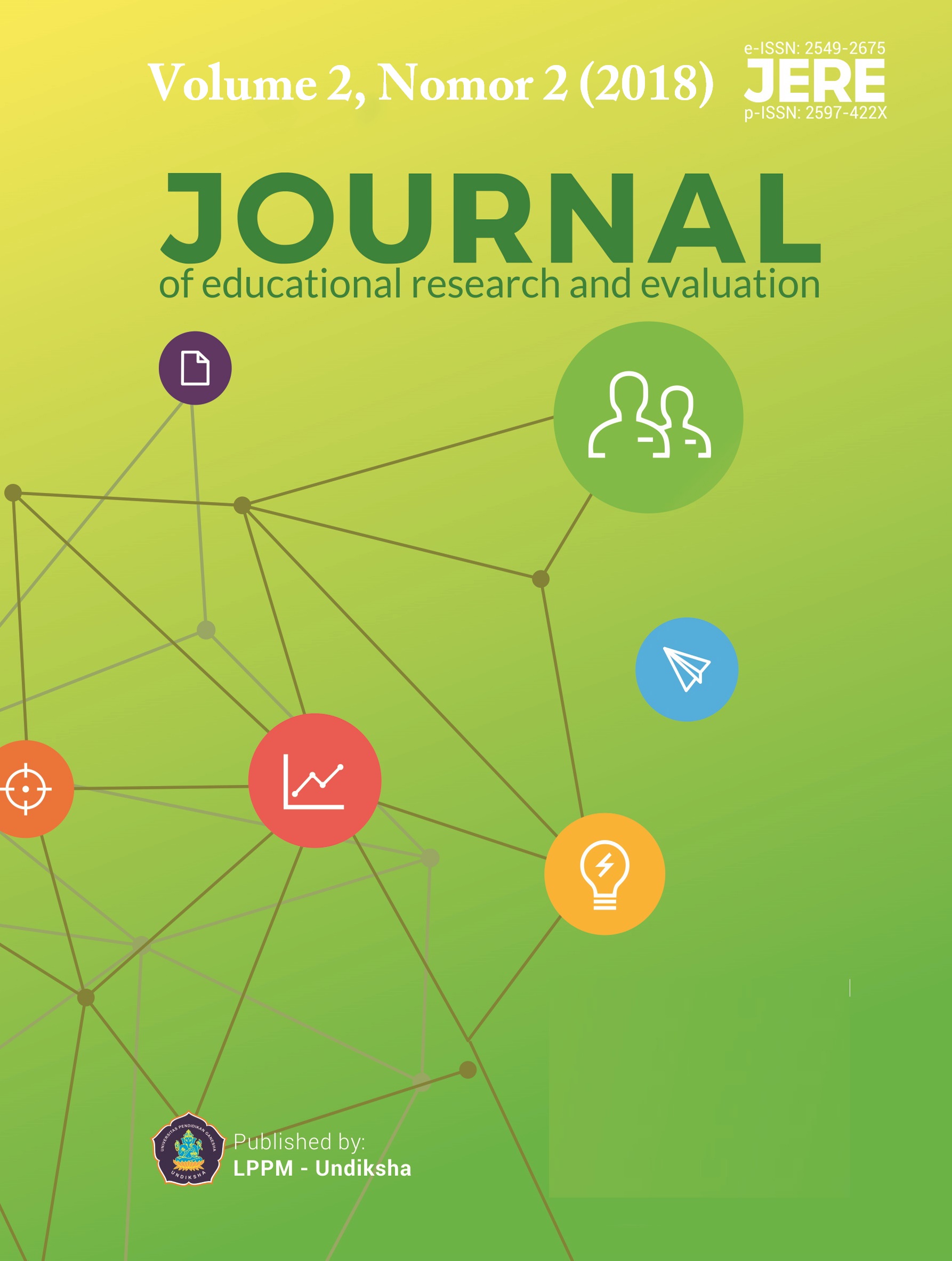Projects Based Learning To Increase Entrepreneurial Interest For Student Entrepreneurship Program
DOI:
https://doi.org/10.23887/jere.v2i2.14762Abstract
In an effort to encourage the nation's economic development through the potential of vocational education in an effort to reduce unemployment and create employment in Indonesia. The government provides opportunities for students to entrepreneurship. With experience about entrepreneurship expected by students after graduating from university students can independently develop business in various sectors. This study aims to help students who have difficulty in pouring their creative ideas into a proposal. This is certainly received serious attention through the process of intense guidance from lecturers especially for students who have never written a paper. In maximizing the potential that exists in a limited time, the development of ideas into proposals can be done by utilizing the time on project management lectures and information systems management with project-based learning methods. The result is that students can learn to write project proposals and produce products that help students in joining entrepreneurship programs.Keywords:one or more word(s) or phrase(s), that it’s important, spesific, or representative for the article.
References
Ermawati and Widodo, J. (2015) ‘Pengaruh Pengetahuan Wirausaha Dan Kepercayaan Diri Terhadap Minat Berwirausaha Siswa Kelas XI Jurusan Pemasaran Smk Negeri 2 Semarang Tahun Ajaran 2014/2015’, Economic Education Analysis Journal, 4(3), pp. 876–887.
Kemenristekdikti (2017) Panduan Program Kewirausahaan Mahasiswa Indonesia.
Lestari, D. I. and Harnanik, S. H. (2012) ‘Pengaruh Prakerin, Prestasi Belajar, Lingkungan Keluarga Terhadap Minat Berwirausaha Siswa’, Economic education analysis journal, 1(2), pp. 1–6.
Margareta, S. (2013) Hubungan Pelaksanaan Sistem Kearsipan Dengan Efektivitas Pengambilan Keputusan Pimpinan Universitas Pendidikan Indonesia. Universitas Pendidikan Indonesia.
Motschnig-pitrik, R. and Figl, K. (2007) Developing Team Competence as Part of a Person Centered Learning Course on Communication and Soft Skills in Project Management.
Mulyadi, E. (2015) ‘Penerapan Model Project Based Learning’, Jurnal Pendidikan Teknologi dan Kejuruan, 22, pp. 385–395.
Muspiroh, N. (2015) ‘Penerapan Project Base Learning ( PBP ) Bagi Mahasiswa’, Scientiae Educatia, 5.
Nur Jannatu Na’imah, S. and Wardani, S. (2015) ‘Penerapan Pembelajaran Berbasis Proyek Berbantuan E-Learning’, Jurusan Kimia FMIPA Universitas Negeri Semarang, 9(2), pp. 1566–1574.
Santos, S. and Alexandre, G. (2015) Applying PBL in Project Management Education : a Case Study of an Undergraduate Course.
Sunaga, Y., Washizaki, H., Kakehi, K., Fukazawa, Y. and Yamato, S. (2016) ‘Relation between Combinations of Personal Characteristic Types and Educational Effectiveness for a Controlled Project-based Learning Course’, 6750(c), pp. 1–9. doi: 10.1109/TETC.2016.2526664.
Wulandari, F. E. (2016) ‘Pengaruh Pembelajaran Berbasis Proyek Untuk Melatihkan Keterampilan Proses Mahasiswa’, 5(2), pp. 247–254.
Downloads
Published
How to Cite
Issue
Section
License
Authors who publish with the Journal of Evaluation and Research in Education (JERE) agree to the following terms:
- Authors retain copyright and grant the journal the right of first publication with the work simultaneously licensed under a Creative Commons Attribution License (CC BY-SA 4.0) that allows others to share the work with an acknowledgment of the work's authorship and initial publication in this journal.
- Authors are able to enter into separate, additional contractual arrangements for the non-exclusive distribution of the journal's published version of the work (e.g., post it to an institutional repository or publish it in a book), with an acknowledgment of its initial publication in this journal.
- Authors are permitted and encouraged to post their work online (e.g., in institutional repositories or on their website) prior to and during the submission process, as it can lead to productive exchanges, as well as earlier and greater citation of published work. (See The Effect of Open Access)











